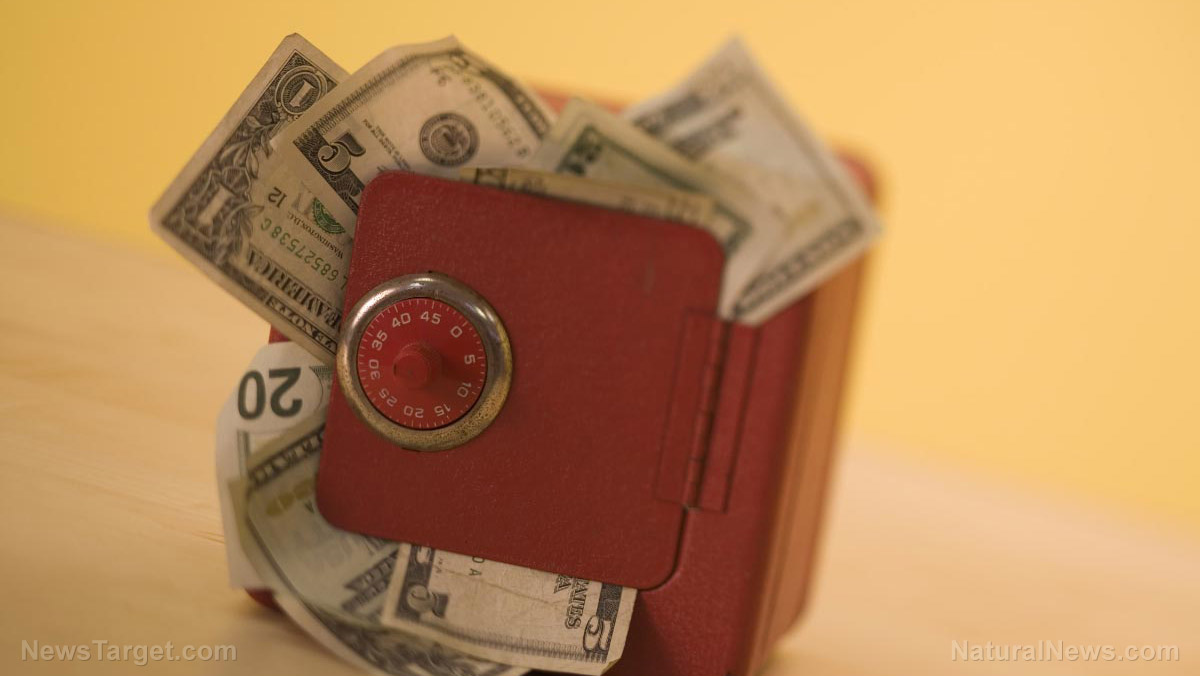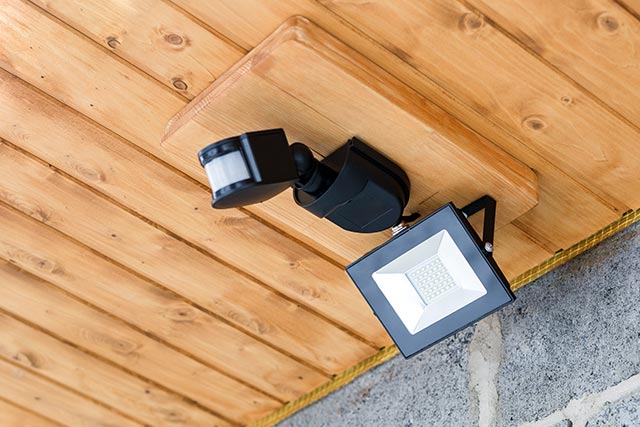Preppers save for a rainy day: Why financial planning is crucial for surviving an economic downturn
04/02/2019 / By Zoey Sky

As a prepper, one of the first things that you need to learn is the importance of financial preparedness. Don’t wait until an economic collapse before you start settling your debts or saving money. (h/t to TimGamble.com)
The basics of financial preparedness
Personal, business, or government debt is bad. It will stress you out, and it makes you more vulnerable to economic downturns.
To become financially prepared, you must first eliminate consumer debt. This includes credit cards, car loans, payday loans, personal loan, and installment plans.
To clear your debts, you may need to make sacrifices, such as:
- Putting off major purchases.
- Avoiding impulse purchases (e.g. luxury items, etc).
- Bringing your own lunch to school or work.
- Having a major yard sale to raise some money.
- Starting a second job.
Making these sacrifices may seem hard, but keep in mind that in the end, the benefits will be more than worth it. (Related: 7 obvious warning signs we are heading for an economic meltdown.)
Second, you need to have emergency savings. Start by holding yard sales or getting a second job. Put the money somewhere safe, such as an insured certificate of deposit (CD). A CD is a type of federally insured savings account with a fixed interest rate and fixed date of withdrawal or maturity date. CDs don’t usually have monthly fees and they are different from traditional savings accounts in several ways. Savings accounts let you deposit and withdraw funds rather freely.
However, with a CD you agree to leave your money in the bank for a set amount of time (know as the “term length”). If you do access the money in a CD, you will need to pay a penalty. Term lengths can range from several days to a decade. The standard range of options for CDs is between three months and five years.
Do your research and compare several companies that offer ratings on the soundness and safety of different financial institutions. Don’t focus on getting interest. Safety and liquidity is your goal for your emergency savings, not growth.
Third, start saving for long-range goals like the purchase of a new car, a new home, or retirement. Use your common sense, don’t settle for risky investments and ask someone you can trust for professional advice.
No investment is 100 percent safe, but the best thing to do is use reason and common sense. Be vigilant and take responsibility for ensuring your own future. You can survive almost any kind of disaster scenario by being responsible for your own life.
Reasons to settle debt
Even if the country is headed toward high inflation, you need to pay off debt because this lets you protect your assets now while you’re still employed.
Debt may cause stress, especially in difficult times. This can negatively affect your health and your ability to make rational decisions during uncertain times.
Debt can shackle you to your current job and circumstances when you need freedom and flexibility during hard times.
Finally, you may not realize it, but interest, late fees, and other penalties can add up quickly.
Tips to save money and stick to the family budget
These tips can help your family save money:
- Live within your means.
- Avoid taking on any new debt and don’t use credit cards, payday loans, or installment payment plans.
- Set up emergency savings.
- Follow your budget or spending plan.
- Get the best bargains using comparison shopping, having shopping lists, and using coupons.
- Use a cheaper, regular phone. Calling and texting are necessary, but the latest smartphone has features that you can live without.
- Get a basic TV package.
- If you can, do away with TV altogether.
Minimize your entertainment expenses. Entertainment is a purely optional budget expense, and you can eliminate it if you want to. You can easily have a good time for free or without spending too much. Have a regular family game night, or play with your kids in the backyard.
Instead of spending money on movie tickets, spend the night reading a book you borrowed from the library. Aside from books, you can borrow audiobooks, board games, magazines, or music CDs from the library. Other libraries may also offer free story times for young children and lecture series for adults.
Don’t go on a trip this year. Stay at home instead of spending money and going to the beach or amusement parks. Visit local botanical gardens, historical sites, museums, parks, wildlife refuges, or zoos. Alternatively, you can go on a picnic, a nature hike, or go fishing at a local lake.
Reduce your home energy use. Turn off the lights and electronics in a room when you’re not using them. Set the thermostat to conserve energy. Replace old appliances with newer energy-efficient models.
Financial preparedness is an important aspect of prepping, and being frugal today can help you get through an economic collapse tomorrow.
Sources include:
Tagged Under: Bubble, Collapse, debt, disaster, economic collapse, economics, economy, emergency savings, finance, financial planning, financial preparedness, financial survival, money, planning, preparedness, prepper, prepping, risk, self sufficiency, self-reliance, SHTF, stock market, survival, sustainable living, Wall Street



















